|
Modeled roughly on the three-guitar, three-part vocal harmony sound of the seminal San Francisco band Moby Grape, The Doobie Brothers were founded in San Jose, California in 1970. The blending of the folk-style finger-picking of Pat Simmons with the rough-hewn rock licks of Tommy Johnston, whose soulful lead vocals gave the band its initial distinctive sound, helped to define what would become known as the California sound of the '70s.
The band's self-titled 1971 debut album, "The Doobie Brothers," yielded no hit singles, but the subsequent "Toulouse Street" of 1972 burst out with Johnston's "Listen To The Music" (#11) and "Jesus Is Just Alright" (#35) in the last three months of the year. The third album, "The Captain and Me" (1973) established the Doobies as concert headliners on the strength of the hits "Long Train Runnin'" (#8) and "China Grove" (#15) (both penned by Johnston).
The fourth album, "What Were Once Vices Are Now Habits" (1974), included "Black Water," the band's first #1 record which eventually sold more than 2 million copies, and was the first hit to feature Simmons as lead vocalist (he also wrote the song). By 1975, with the release of "Stampede," which included the remake of the Motown classic "Take Me In Your Arms (Rock Me A Little While)" (#11) and the addition of former Steely Dan guitarist Jeff "Skunk" Baxter, The Doobies had become one of the most popular rock bands in the country.
That same year, when illness forced Johnston out of The Doobies lineup, Baxter suggested another Steely Dan alumnus to fill his spot, and Michael McDonald was drafted. Their sound also changed, from a hard-edged guitar-filled sound to that of mellow rock (filled with keyboards and horns). His presence was felt immediately as The Doobie Brothers scored a platinum million-selling album in 1976 with "Takin' It To The Streets," propelled by the title-tune single "Takin' It To The Streets" (#13) written by McDonald. In the summer of the year, the band backed up Carly Simon on her version of the McDonald composition, "It Keeps You Runnin'," which hit #46 on the chart; ironically, the Doobies' own version of the song released five months later did even better for them, hitting #37.
Johnston returned briefly to help record the next album, "Livin' On the Fault Line" (1977), but for all intents and purposes Michael McDonald had taken over the lead vocal chair, launching a second golden era of hits for The Doobie Brothers. "What A Fool Believes," a song McDonald wrote with Kenny Loggins, gave the band its second #1 hit. It was included on "Minute By Minute" (1979), whose title tune "Minute By Minute" (#14) notched up another hit, followed in turn by "Dependin' On You" (#25).
1979 also found Baxter leaving The Doobies, to be replaced by steel guitarist John McFee, a veteran of Clover, the Marin County country-rockers who not only backed up Elvis Costello on his debut album (before the Attractions were formed), but also nurtured the early career of singer-songwriter Huey Lewis.
1980 began with The Doobie Brothers nailing three Grammy awards for "What A Fool Believes" (Record of the Year, Song of the Year, Best Vocal Arrangement) and a fourth Grammy going to "Minute By Minute" (Best Pop Vocal Performance, Duo/Group). The year ended with a new album, "One Step Closer," and another pair of hits, "Real Love" (#5) and the title tune "One Step Closer" (#24).
The Doobies embarked on their final tour in 1982, highlights of which were released the following year on the double-LP set, "Farewell Tour," which included Johnston's guest appearance with the band at U.C. Berkeley's Greek Theater. The musicians then went their separate ways, with Johnston, Simmons and McDonald all releasing successful solo albums. The band would reconvene once a year for a traditional concert at the Lucille Salter Packard Children's Hospital at Stanford University in Palo Alto, not far from their hometown of San Jose.
Five years passed, until twelve alumni of The Doobies (with Johnston and Simmons) reformed for an 11-city tour that raised more than $1 million for a variety of charities, including a fundraiser at the Hollywood Bowl for the Vietnam Veterans Aid Foundation that was the second quickest sellout in the venue's history, second only to the Beatles. The tour culminated on July 4th in Moscow, at a peace concert featuring Soviet and American rock bands.
The tour re-ignited interest in The Doobie Brothers both from the audience's viewpoint and the musicians themselves. The band finally returned to the recording studio for Capitol Records. The resulting album, "Cycles" (1989), included a major new hit, "The Doctor" (#9), a chugging, driving song that returned the signature sound of the early Doobies to the radio. A second album was subsequently issued by the reunited band, "Brotherhood" (1991).
All 12 past and present members of The Doobie Brothers came together in October 1992 for two shows to raise money for a trust fund for the children of the band's percussionist Bobby LaKind, diagnosed with terminal cancer. He died on Christmas Eve that year.
But with more than two decades worth of great music to feed their hungry fans, the six core members Johnston, Simmons, McFee, drummer Mike Hossack, drummer/vocalist Keith Knudsen and bass man Tiran Porter continued to rock, playing 47 dates with Foreigner in the summer of 1994 alone. This included tours of Europe, Australia and New Zealand. The 1996 summer tour featured The Doobie Brothers with Lynyrd Skynyrd.
The Doobie Brothers 25th anniversary celebration kicked into high gear in July of 1996, when Rockin' Down the Highway: The Wildlife Concert, a special benefit reunion concert for the Wildlife Conservation Society, was released as a double-album (CD, Cassette, MiniDisc) by Legacy Recordings, a division of Sony Music Entertainment, and as a home video (VHS, LaserDisc) by Sony Music Video (SMV). The one-hour concert special was broadcasted on PBS in August, during the annual pledge drive, and PBS outlets continued to air the special in the fall as part of its award-winning series, "In the Spotlight."
Rockin' Down the Highway brought together Tom Johnston, Patrick Simmons, and Michael McDonald for an exceptional live appearance, and marked the first live recordings by The Doobie Brothers since 1983. The performances were taped in May at Sony Music Studios in New York, and on-tour in Nashville, where McDonald joined the lineup for three Doobies classics, "What A Fool Believes," "Minute By Minute" and "Takin' It To The Streets." The tapings were directed by Ernie Fritz and produced by Automatic Productions. The album was produced by The Doobie Brothers and Charlie Midnight.
The live concert special caped an extraordinary year of activity for The Doobie Brothers that started in the summer, 1995, when Johnston, Simmons and McDonald first got together to share vocals on an unprecedented road show tour with Steve Miller. Between them, the three Doobie Brothers vocalists have been responsible for 27 chart singles since the band first exploded on the scene with the classic "Listen To The Music" in 1972, including a pair of #1 hits ("Black Water," "What A Fool Believes") and more than a dozen others to land inside the Top 40.
The Doobie Brothers have released a total of 14 albums, with Rockin' Down the Highway coming in at number 15. They have earned 13 RIAA gold and 11 multi-platinum sales awards, and performed around the world for more than 35 million fans.
As they entered their second quarter century together, Rockin' Down the Highway: The Wildlife Concert uniquely captured the musicianship and showmanship that has made The Doobie Brothers one of the most popular American rock bands of all time. The Doobie Brothers, through their performance of this concert, greatly benefited the Wildlife Conservation Society (WCS), one of the world's largest conservation organizations, headquartered at the Bronx Zoo.
 A "Diamond" record? Most people have heard of "Gold" and "Platinum" records, but now there is going to be a new category for recordings whose sales reach or exceed 10 million units. This is obviously not a category many records, even very successful ones, may attain, so the Doobie Brothers are understandably proud to have been notified that "The Best of the Doobies" (sales reached 10 million in 1996) is one of the first recordings to be honored with this award. The RIAA has asked that the group send representatives to Washington, D.C. to accept the award.
A "Diamond" record? Most people have heard of "Gold" and "Platinum" records, but now there is going to be a new category for recordings whose sales reach or exceed 10 million units. This is obviously not a category many records, even very successful ones, may attain, so the Doobie Brothers are understandably proud to have been notified that "The Best of the Doobies" (sales reached 10 million in 1996) is one of the first recordings to be honored with this award. The RIAA has asked that the group send representatives to Washington, D.C. to accept the award.
For those of you who may wonder what is the RIAA and who the heck creates these categories and keeps track of sales and such, it is the Recording Industry Association of America (RIAA). "Gold" records represent sales of 500,000 units, "Platinum" 1,000,000 units, and now, the soon-to-be "Diamond" category of 10,000,000 units.
The Doobie Brothers latest, "Live at Wolf Trap" concert performed July 25, 2004, is available on DVD and CD formats. The project was recorded and produced by Ed Cherney - Grammy, TEC, and you-name-it award winner - whose work includes such artists as the Rolling Stones, Bob Dylan, Eric Clapton, the B-52's, Roy Orbison, Bonnie Raitt, Keb Mo, Billy Joel, Jan Arden, Bob Seger, Steely Dan, the Goo Goo Dolls, Hootie & the Blowfish, and others.
Today, the Doobie Brothers continue to perform hits from their 60 million record sales of “Listen to the Music,” “Black Water,” “China Grove,” “Takin’ it to the Streets," and many, many others to doobie fans far and wide. After almost 40 years of successfully playing together, the Doobies continue to be a driving force in Rock and Roll, performing to sold-out audiences around the world.
|

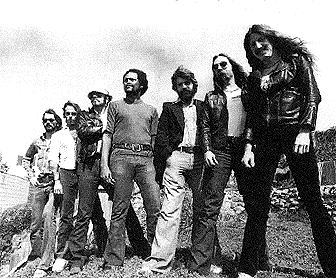


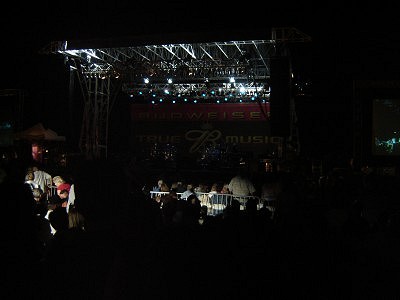
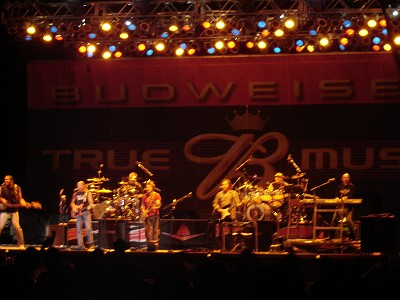
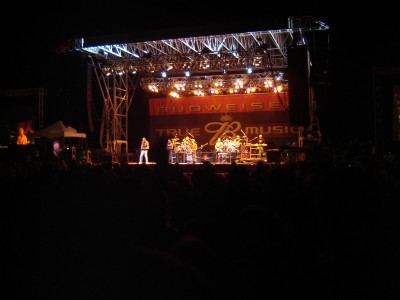
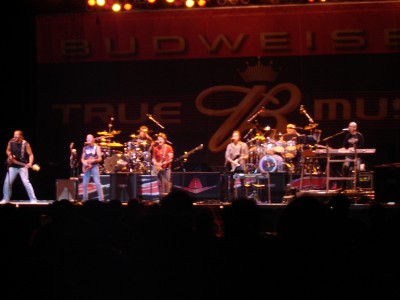
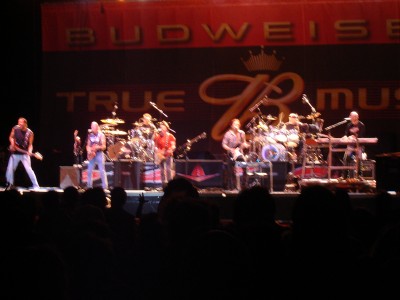

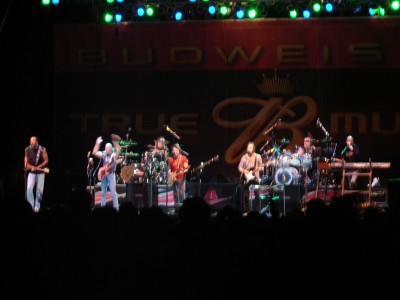
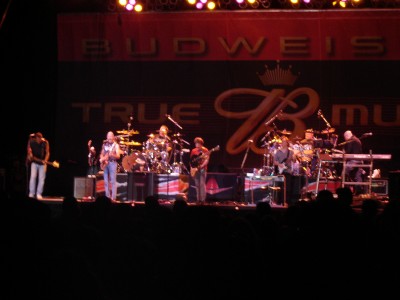

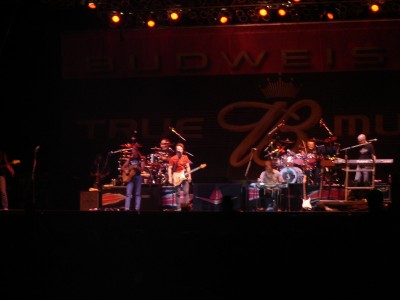
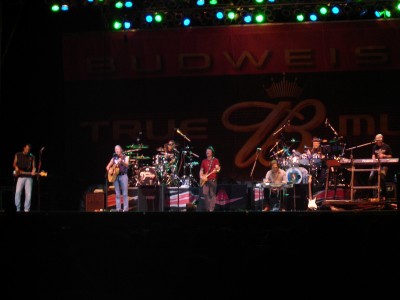

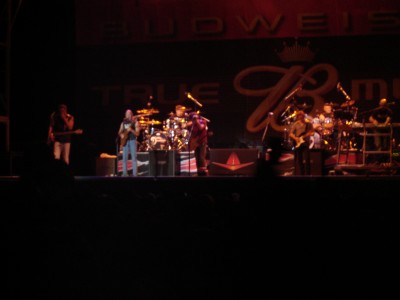
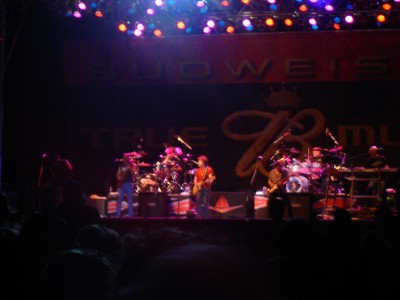
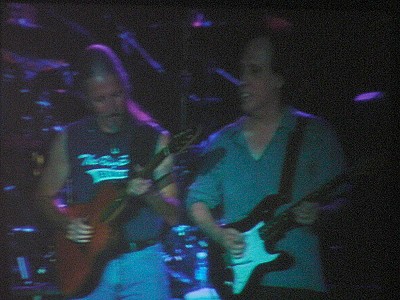
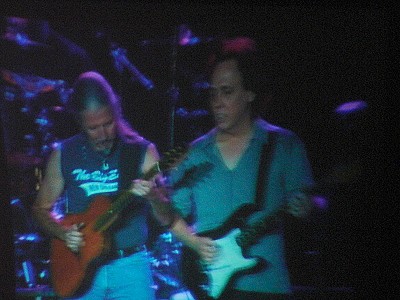
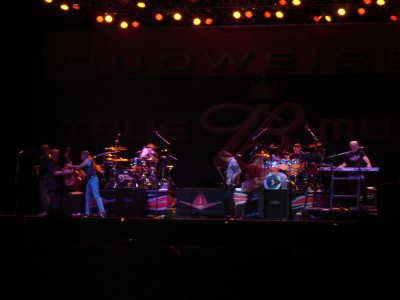
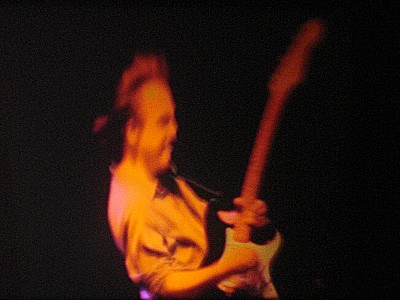


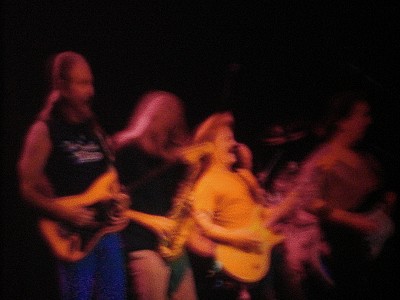
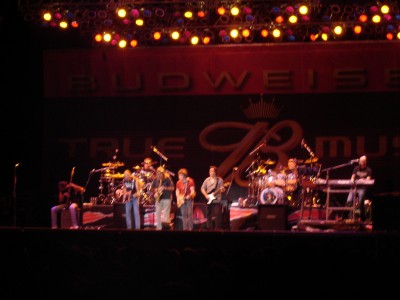
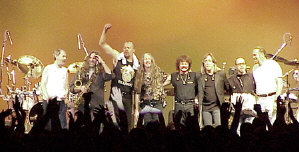
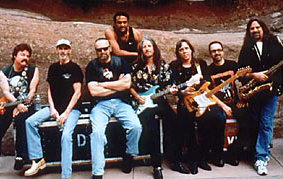
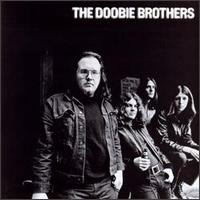
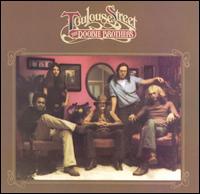
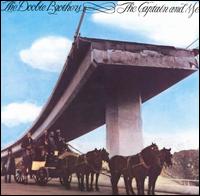
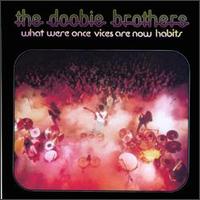
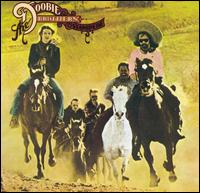
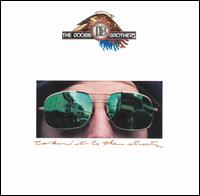
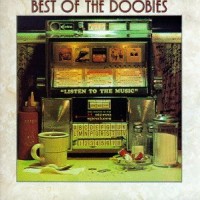
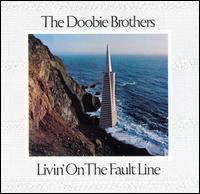
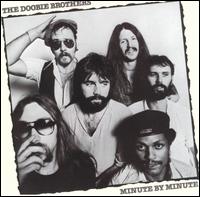
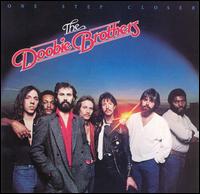
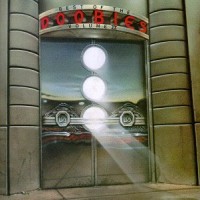
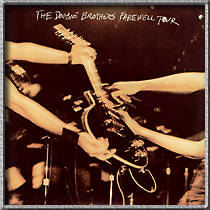
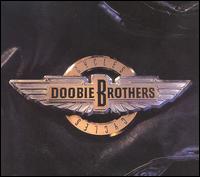
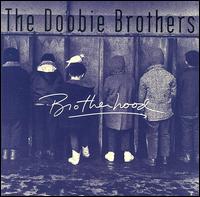
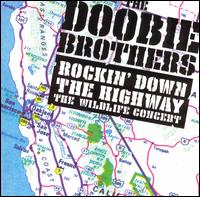
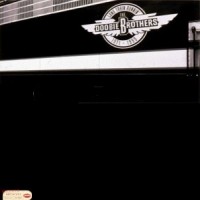
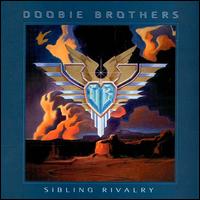
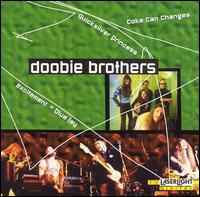
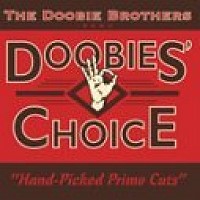
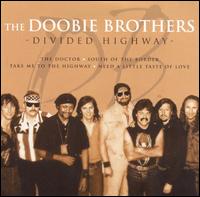
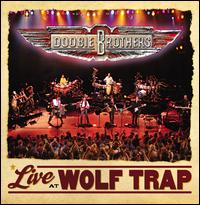
 A "Diamond" record? Most people have heard of "Gold" and "Platinum" records, but now there is going to be a new category for recordings whose sales reach or exceed 10 million units. This is obviously not a category many records, even very successful ones, may attain, so the Doobie Brothers are understandably proud to have been notified that "The Best of the Doobies" (sales reached 10 million in 1996) is one of the first recordings to be honored with this award. The RIAA has asked that the group send representatives to Washington, D.C. to accept the award.
A "Diamond" record? Most people have heard of "Gold" and "Platinum" records, but now there is going to be a new category for recordings whose sales reach or exceed 10 million units. This is obviously not a category many records, even very successful ones, may attain, so the Doobie Brothers are understandably proud to have been notified that "The Best of the Doobies" (sales reached 10 million in 1996) is one of the first recordings to be honored with this award. The RIAA has asked that the group send representatives to Washington, D.C. to accept the award.